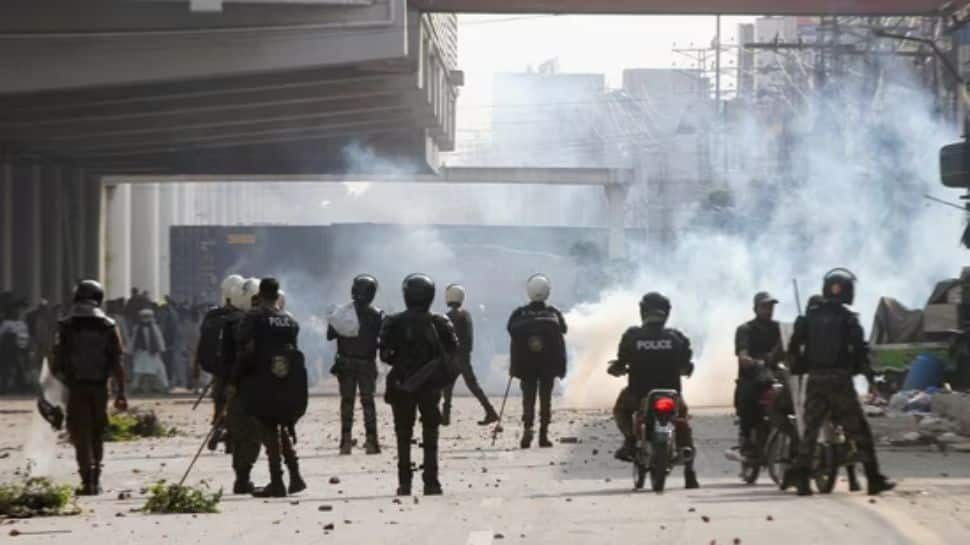Pakistan-Afghanistan Border Clashes Leave Dozens Dead, Posts Captured
Heavy cross-border fighting between Pakistan and Afghanistan has resulted in significant casualties and captured military positions, with both sides claiming victory in one of the deadliest confrontations in recent years.
Key Takeaways
- Taliban claims 58 Pakistani soldiers killed, 25 posts captured
- Pakistan confirms 23 deaths, says it destroyed 21 Afghan posts
- Fighting triggered by alleged Pakistani airstrikes in Afghanistan
- Regional powers call for restraint amid escalating tensions
Deadly Border Exchange
Intense gunfire and explosions rocked the Pakistan-Afghanistan border through the night of October 11, spreading across multiple points along the disputed Durand Line. The clashes affected areas including Angoor Adda, Bajaur, Kurram, Dir, Chitral in Pakistan’s Khyber Pakhtunkhwa province and Bahram Chah in Balochistan.
Taliban spokesman Zabihullah Mujahid declared, “The situation on all official borders and de facto lines of Afghanistan is under complete control.” He claimed Afghan forces captured 25 Pakistani army posts and wounded 30 soldiers.
Pakistan’s military described the attacks as “cowardly actions aimed at destabilising the border” and said it had “repelled the assault decisively.”
What Triggered the Conflict?
The fighting erupted two days after deadly explosions rocked Kabul and Paktika province, which the Taliban blamed on Pakistan. Security officials privately told Reuters that Pakistani air strikes had targeted Tehrik-e-Taliban Pakistan (TTP) chief Noor Wali Mehsud, though his survival status remains unclear.
The TTP, once Pakistan’s most wanted insurgent group, has regained strength since the Afghan Taliban took power in 2021. Islamabad accuses Kabul of sheltering TTP fighters, while Kabul denies these allegations.
Militant violence has surged since the fall of Imran Khan’s government in 2022, with over 2,400 people killed in the first nine months of this year alone according to security reports.
Official Reactions
Pakistan’s Prime Minister Shehbaz Sharif called the Taliban assault a “provocation” and praised the army’s “befitting reply.” Interior Minister Mohsin Naqvi condemned what he called “unprovoked firing” on civilians, accusing Afghanistan of “playing a game of fire and blood.”
Taliban Defence Ministry spokesman Enayatullah Khowarazmi described their response as “retaliatory” and warned of further action if “Afghanistan’s airspace is violated again.” He claimed, “Our forces are ready to defend every inch of Afghan soil.”
Regional Concerns
The clashes have prompted calls for restraint from regional powers. Iran’s Foreign Minister Abbas Araghchi urged both sides to avoid escalation, noting that “stability between these two neighbours contributes to regional stability.”
Qatar and Saudi Arabia appealed for dialogue and diplomacy, warning against “further escalation that threatens regional peace.” Meanwhile, India remained silent as Afghan Foreign Minister Amir Khan Muttaqi received a red-carpet welcome in New Delhi.
Analysts suggested this diplomatic gesture “probably influenced Pakistan’s decision to show force on the border.”
Fragile Calm
Security experts believe both sides want to avoid full-scale conflict. “As far as conventional warfare goes, Afghanistan does not have the capability to challenge Pakistan. But guerrilla tactics are a different matter,” they noted.
Kabul-based analyst Bahiss explained, “The Afghan retaliation was to show their public that they can defend their sovereignty. Pakistan, too, needed to show strength after repeated attacks on its forces.”
Experts emphasized that diplomacy remains the only viable solution. “If the Afghan Taliban do not act against the TTP, Pakistan will keep striking inside Afghanistan. But if Kabul does act, it risks angering its own fighters. It is a dangerous trap,” they warned.
While the guns have fallen silent for now, few believe the peace will last along the tense Durand Line frontier.




